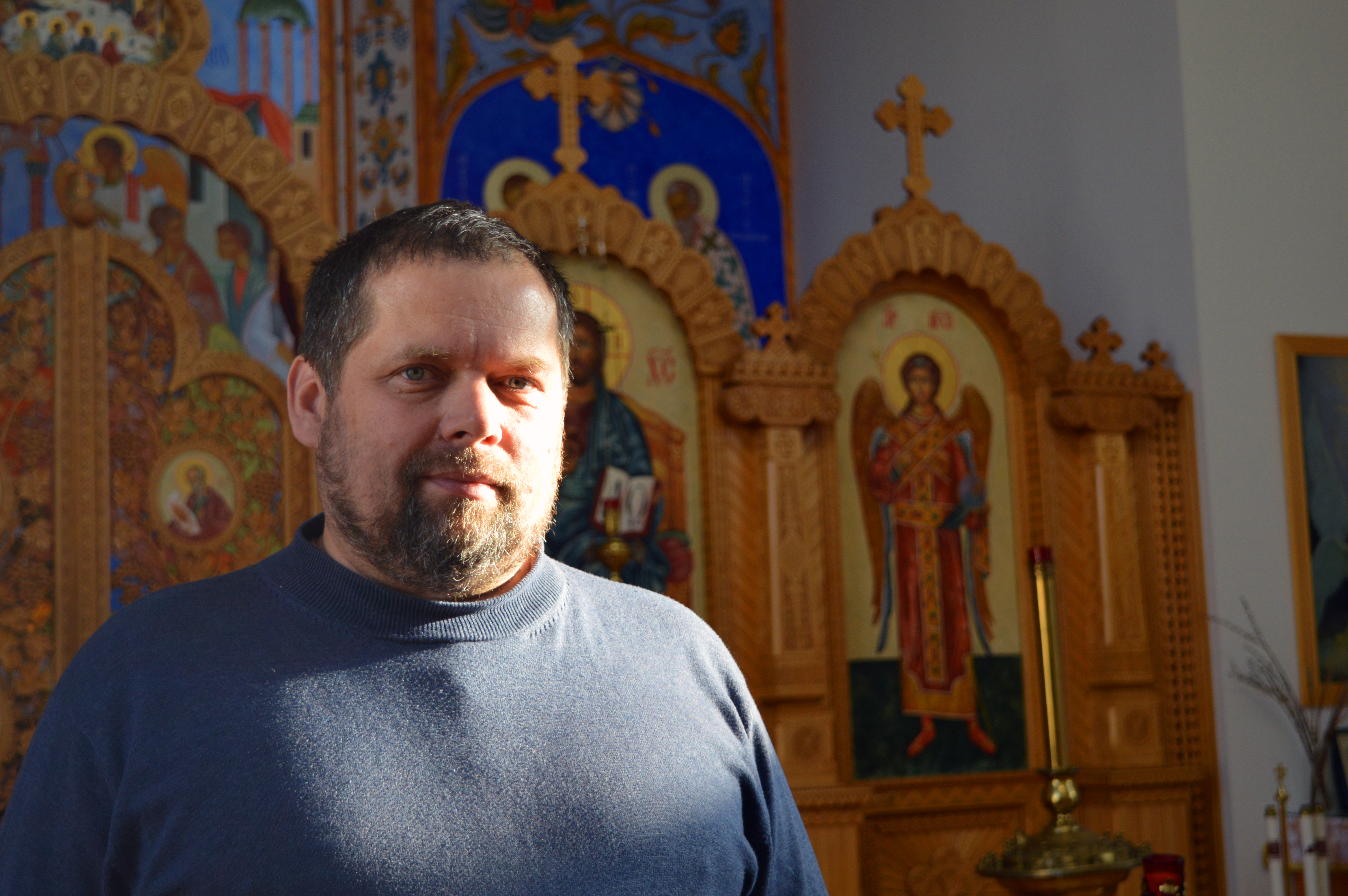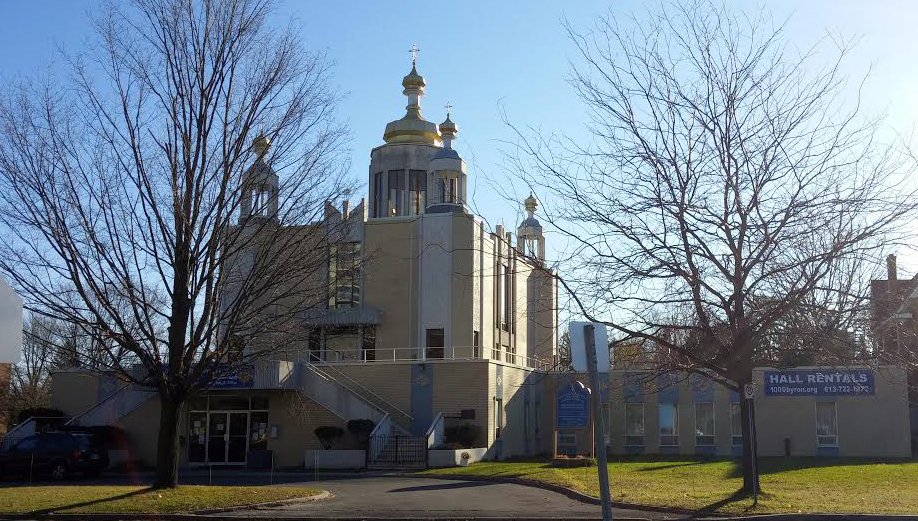
The pews were overflowing with people at the Ukrainian Orthodox church on 1000 Byron Ave. on Sunday. Whispers in Ukrainian and English could be heard in the background. The choir above began to sing and the room filled with sombre tones.
On this particular Sunday, the church was holding a memorial service for the death of a member of the Ukrainian community. Friends, family and many others from the local Ottawa Ukrainian community came to pay their respects. Leading the service was Father Ihor Okhrimtchouk, the priest of Assumption of the Blessed Virgin Ukrainian Orthodox Cathedral.
For many in the community, there is an inherent link between Ukrainian culture and faith. Okhrimtchouk says they are inseparable.
“Orthodoxy is not a plain faith,” says Okhrimtchouk. “It is always tinted or coloured by the environment where it lives in. How closely are they related? They merged together—Ukrainian Orthodoxy. Same thing with Ukrainian Catholic, they merged together in that environment.”
The Ukraine-native from the village of Lanivtsi came to Canada in 1990 and settled in Winnipeg. However, the need for a priest in Ottawa brought him to the capital in 2002 where he has been ever since.
The church service interchanges between Ukrainian and English, with major aspects of the service delivered in both languages. Okhrimtchouk says observers should recognize both the Ukrainian culture and faith of the church to make the most of their experience.
“We can have Ukrainian chants, but it’s about the faith. If you don’t have the faith but just come for the cultural experience, you’re missing the major part. On the other hand, if you come for the faith and dismiss the cultural part—the Ukrainian experience—you are also missing a big part,” says Okhrimtchouk.
Okhrimtchouk lives near the church for ease of access, but many others in the Ukrainian-speaking community also live in the area. Dense populations of people who speak Ukrainian live in north-west Ottawa, starting at Westboro and moving west into Kanata and Stittsville, according to 2011 National Household Survey data for Ottawa from Statistics Canada.
Michael Kostiuk, president of the Ukrainian Canadian Professional and Business Association of Ottawa, says there are historical links to the Ukrainian Orthodox and Ukrainian Catholic churches in Ottawa.
The Ukrainian Orthodox church was originally erected in downtown Ottawa in 1950 but then plans were made to move to its current location in 1962, moving it westward with the community.
Kostiuk, who has a Master’s degree in geography from Carleton University, says jobs in the downtown core drew people to the area in the time leading up to 1950.
“In the 1950s people moved to the new homes west of Holland Avenue as they became available, and car use meant the city could expand beyond the streetcar lines,” says Kostiuk. “That also occurred in other cities such as Toronto where Ukrainians moved from the core west to areas such as Etobicoke, Mississauga, Oakville.”
However, the Ukrainian-speaking community in Ottawa is not very large, totalling to 1630 Ukrainian-speakers, with the densest area at the west end of Carling Avenue only containing 100 speakers, according to the 2011 NHS data.

Okhrimtchouk says the core of their church community is small because people are constantly moving in and out of the city.
“One of the words you can use to describe our community is transient,” says Okhrimtchouk. “They come here, they live a couple years and they move on.”
He says this transiency can make it challenging to establish a base-community for the church. However, that does not stop their existing community from getting involved.
The church holds an annual Christmas Bazaar, various other dinners and social events as well as community outreach. Okhrimtchouk says there might even be a “battle of the borscht” (a traditional Ukrainian soup) to look forward to in the coming year.
